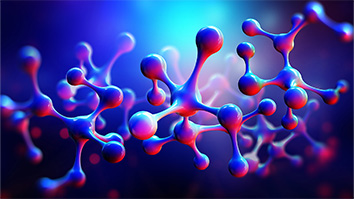Citation
Stephens, S. H., Hartz, S. M., Hoft, N. R., Saccone, N. L., Corley, R. C., Hewitt, J. K., . . . Ehringer, M. A. (2013). Distinct Loci in the CHRNA5/CHRNA3/CHRNB4 Gene Cluster Are Associated With Onset of Regular Smoking. Genetic Epidemiology, 37(8), 846-859.
Abstract
Neuronal nicotinic acetylcholine receptor (nAChR) genes (CHRNA5/CHRNA3/CHRNB4) have been reproducibly associated with nicotine dependence, smoking behaviors, and lung cancer risk. Of the few reports that have focused on early smoking behaviors, association results have been mixed. This meta-analysis examines early smoking phenotypes and SNPs in the gene cluster to determine: (1) whether the most robust association signal in this region (rs16969968) for other smoking behaviors is also associated with early behaviors, and/or (2) if additional statistically independent signals are important in early smoking. We focused on two phenotypes: age of tobacco initiation (AOI) and age of first regular tobacco use (AOS). This study included 56,034 subjects (41 groups) spanning nine countries and evaluated five SNPs including rs1948, rs16969968, rs578776, rs588765, and rs684513. Each dataset was analyzed using a centrally generated script. Meta-analyses were conducted from summary statistics. AOS yielded significant associations with SNPs rs578776 (beta = 0.02, P = 0.004), rs1948 (beta = 0.023, P = 0.018), and rs684513 (beta = 0.032, P = 0.017), indicating protective effects. There were no significant associations for the AOI phenotype. Importantly, rs16969968, the most replicated signal in this region for nicotine dependence, cigarettes per day, and cotinine levels, was not associated with AOI (P = 0.59) or AOS (P = 0.92). These results provide important insight into the complexity of smoking behavior phenotypes, and suggest that association signals in the CHRNA5/A3/B4 gene cluster affecting early smoking behaviors may be different from those affecting the mature nicotine dependence phenotype.


